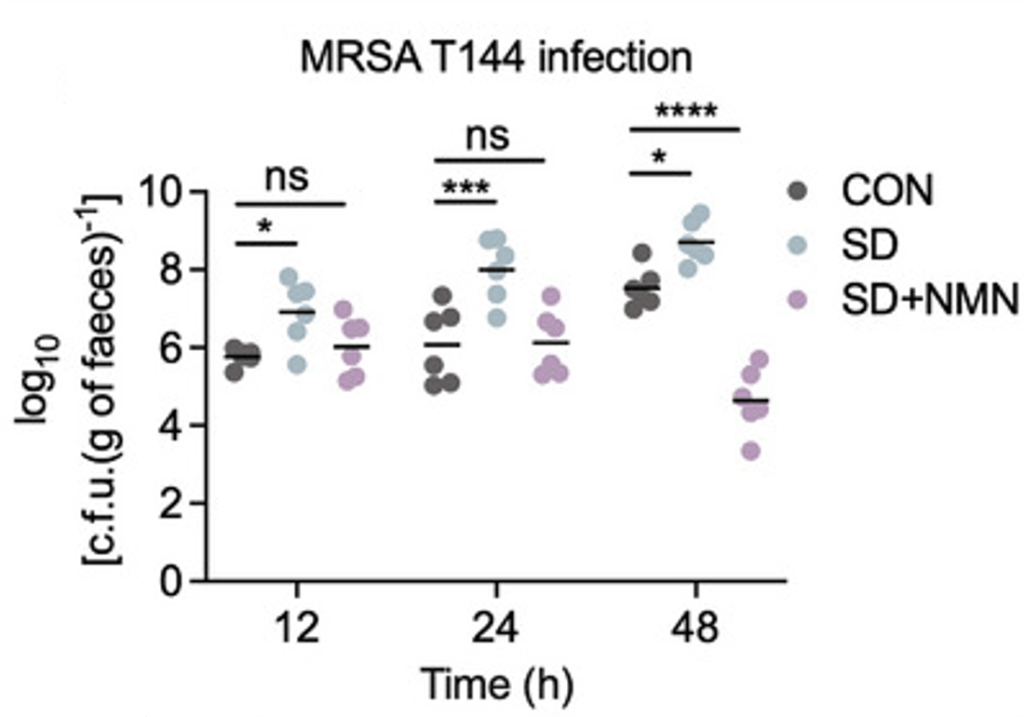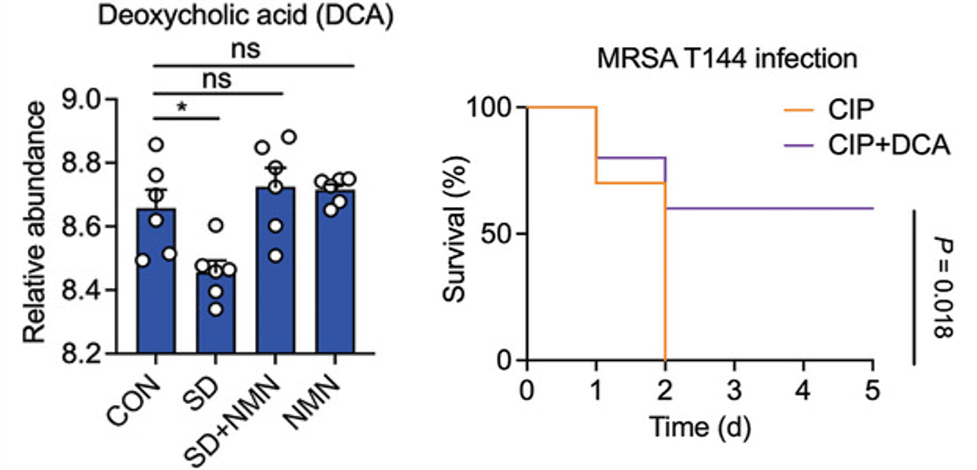Chinese scientists find that NMN protects against intestinal infection in sleep-deprived mice and elevates an antibacterial bile salt that increases the survival of infected moth larvae.
Senior author, Dr. Yuan Liu | Revive
By Victor Ciardha Published: 10:02 am PST Feb 7, 2023 | Updated: 4:43 p.m. PST Feb 7, 2023
Highlights:
Sleep deprivation (SD) can lead to cardiovascular disease, cognitive impairment, and intestinal infection. Thus, finding ways to mitigate the adverse effects of SD is critical for health and longevity.
“According to the World Health Organization (WHO), intestinal infections annually kill more than two million people worldwide, most of whom are children,” state Fang and colleagues, the authors of a new study from Yang Zhou University in China.
Fang and colleagues have found that NMN fights against intestinal infections. The researchers report in Advanced Science that NMN ameliorates SD-induced gut bacteria changes in mice. NMN also reduces infection and increases a bile salt called DCA. They go on to show that DCA has antibacterial properties that increase the survival rate of infected mice.
NMN Protects Against Intestinal Infection
To establish an SD mouse model, Fang and colleagues used a continuously rotating machine to interfere with mice and prevent them from sleeping for three days. During these three days, 100 mg/kg of NMN was fed to the mice. To induce intestinal infection, the mice were force-fed pathogens, including a bacteria called MRSA T144. As a result, the SD mice had a 10 to 1000-fold higher fecal load of pathogens, which was prevented by NMN. NMN also reduces the inflammatory response to infection.

(Fang et al., 2023 | Advanced Science)
NMN Prevents Infection Caused by Sleep Deprivation (SD). Compared to normal mice (CON), SD mice have increased infection (c.f.u./g of faeces) from MRSA T144 bacteria. However, NMN (SD+NMN) prevents this infection.
To determine how NMN could reduce intestinal infection, Fang and colleagues measured gut bacteria metabolites from NMN-treated SD mice. They found that the bacterial production of a bile salt derivative called deoxycholic acid (DCA) was increased by NMN. Further experiments showed that DCA has potent antibacterial activity, and treating moth larvae with DCA for three days increased their survival by 50% when combined with the antibiotic ciprofloxacin (CIP).

(Fang et al., 2023 | Advanced Science)
NMN Restores Life-Extending Antibacterial Metabolite Deoxycholic Acid (DCA) in SD Mice. Left:Compared to normal mice (CON), SD mice have low DCA (Relative abundance), which is restored by NMN (SD+NMN). Right: Treating MRSA T144-infected moth larvae with DCA and the antibiotic CIP increases survival by 50%.
NMN for Intestinal Health
NMN has previously been shown to restore the structural integrity of the intestine by boosting antioxidant defenses and reducing inflammation in older mice. NAD+, which is elevated by NMN, also acts as an antioxidant in sleep-deprived fly intestines, which increases their lifespan. Furthermore, NMN has been shown to improve gut bacteria composition in mice. These studies are supported by the findings of Fang and colleagues, who now show that NMN has antibacterial effects. While human studies are needed, it seems that NMN could improve intestinal and gut bacteria health from multiple angles.
Model and Dosage
Model: 8-week-old female BALB/c mice
Dose (oral): 100 mg/kg NMN during a three-day sleep deprivation period
Story Source
Fang D, Xu T, Sun J, Shi J, Li F, Yin Y, Wang Z, Liu Y. Nicotinamide Mononucleotide Ameliorates Sleep Deprivation-Induced Gut Microbiota Dysbiosis and Restores Colonization Resistance against Intestinal Infections. Adv Sci (Weinh). 2023 Jan 25:e2207170. doi: 10.1002/advs.202207170. Epub ahead of print. PMID: 36698264.